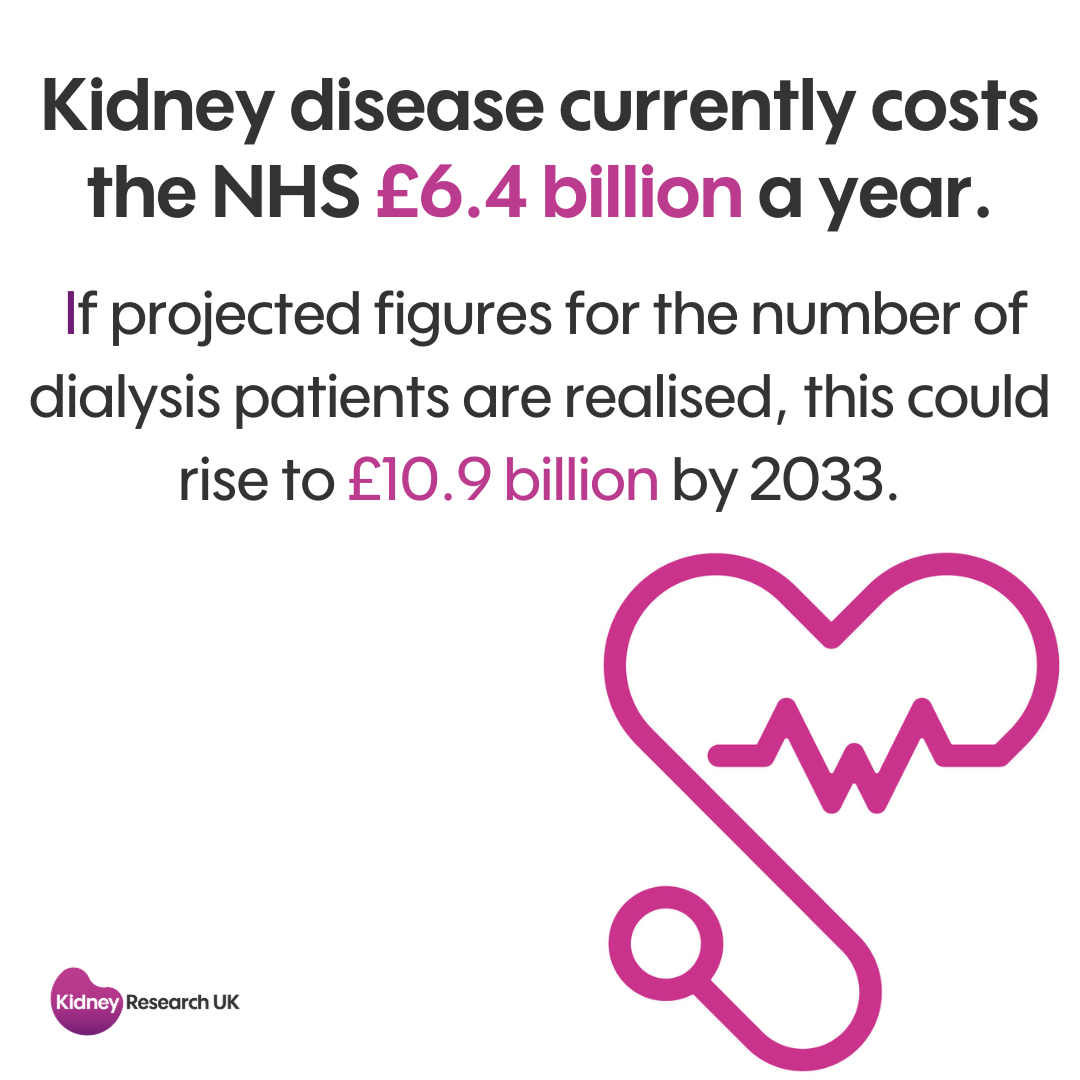
Our open letter – in full.
Dear political leaders
As the country prepares to go to the polls, it is also one year since Kidney Research UK’s report, Kidney disease – A public health emergency, was published, forecasting ten years ahead. This clearly spelled out how the cost of kidney disease to the UK economy could rise from more than £7 billion a year to almost £14 billion. Further, the tide is rising so rapidly, thousands more will be waiting for transplants and demand for dialysis treatment is set to overwhelm the NHS by 2033. In publishing the report we revealed that by acting now, more than 10,000 deaths could be prevented by 2033. A year on, with limited progress and political parties now seeking mandates, we are again urging action for the more than seven million people already living with kidney disease and those at risk of swelling this number further.
We know we are not alone in our concerns, international organisations are calling for kidney disease to be a public health priority and the Health Foundation has also identified kidney disease as one of the fastest growing major illnesses.
Our report clearly set out four cost-effective or cost-saving interventions to stem this tide, yet we have seen no substantive response from government. Unmanageable numbers of patients in kidney failure needing resource-intensive dialysis or transplants will flood our hospitals unless the UK’s governments act now to improve early diagnosis, enhance disease management, increase the uptake of protective drugs and raise rates of transplantation.
Since the Kidney Research UK report was published, the charity, our partners and some NHS bodies have taken steps to pursue the interventions that will help us mount our defences.
In partnership with others and with the generous support of philanthropists, fundraisers and industry, we’re running projects enabling people from at-risk minority groups to access testing and support; we’re raising awareness amongst primary care professionals on the links between diabetes and kidney disease; we’re funding research focused on enabling more patients to receive longer-lasting transplants; we’ve developed a new programme to encourage and support more people to become living kidney donors; we’ve produced clear recommendations on ways to improve early diagnosis and treatment options by identifying patients in primary care.
In our stretched NHS, renal professionals in many areas are pulling together to drive strategy and implement change, whilst delivering the best care possible, despite seriously limited resources.
Extraordinary people across the NHS and charities are doing extraordinary things, but without direct government intervention, it will not be enough to hold back the tide.
Kidney disease affects 10% of the UK population and is growing – a direct link to our ageing population and rising cases of diabetes, high blood pressure, heart disease and obesity. But despite our calls for action, there has been no incorporation of kidney disease monitoring in the Quality and Outcomes Framework, and kidney disease was not given priority focus in the Major Conditions Strategy framework.
Six people already die every week waiting for a transplant: this is the human cost of kidney disease alongside the well-documented physical and mental health impacts.
- The Renal Warrior Project. Join Now
- Source: https://www.kidneyresearchuk.org/2024/06/12/urgent-call-to-our-political-leaders-at-election-time/
